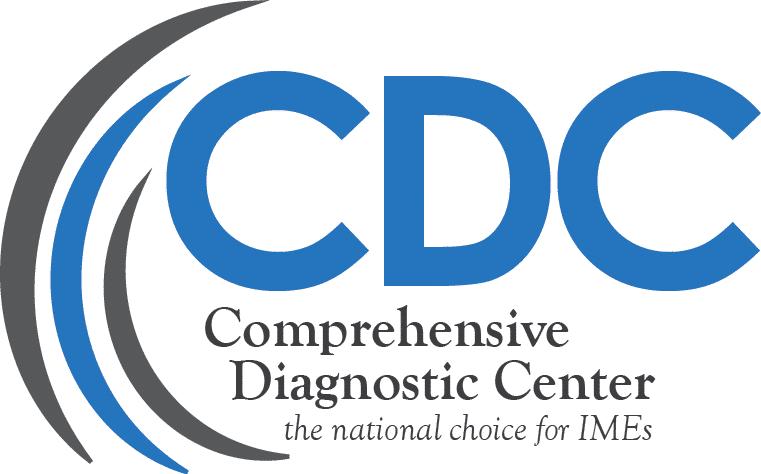Achieve Better Results in Workers’ Compensation with Independent Medical Exams (IMEs)
October 1, 2024The Role of Nurse Case Managers in Coordinating Independent Medical Evaluations (IMEs)
December 4, 2024The Impact of Accurate Medical Record Reviews on Legal Outcomes
In the high-stakes world of legal cases involving personal injury, workers’ compensation, and disability claims, every piece of evidence matters. Among these, medical records serve as a cornerstone of information, providing an in-depth look at the claimant’s medical history, diagnosis, treatment, and recovery. However, the value of these records hinges on their accuracy and thoroughness. Detailed medical record reviews play a critical role in shaping legal outcomes, guiding decisions that have a profound impact on claim resolution. Whether it’s a workers’ compensation claim or a personal injury lawsuit, the accuracy and completeness of medical records can mean the difference between a favorable or unfavorable legal outcome.
Why Detailed Medical Record Reviews Are Crucial in Legal Cases
Medical records are more than just documentation of a patient’s health history—they are a key piece of evidence that supports or disputes the claims made by the parties involved. For attorneys, insurers, and other legal professionals, a comprehensive medical record review can clarify complex medical issues, establish a timeline of events, and substantiate or refute injury claims.
In a study published by the National Center for Biotechnology Information highlights the importance of information integrity in medical records and its impact on legal cases, emphasizing that accurate records can significantly influence legal outcomes by supporting or challenging claims made during litigation (NCBI).
For example, in workers’ compensation cases, discrepancies or missing information can lead to disputes about the severity of an injury or the necessity of certain treatments. In personal injury claims, medical records provide a detailed account of the injuries sustained and their impact on the claimant’s quality of life. Errors or omissions in these records can weaken the credibility of a claim, potentially leading to an unfavorable verdict or settlement.
Moreover, a report by the American Health Information Management Association (AHIMA) notes that detailed reviews ensure that all relevant information, including pre-existing conditions, medication history, and prior treatments, is thoroughly considered. This level of scrutiny is essential for establishing causation and determining whether the injury or condition in question is truly a result of the incident at hand.
How Inaccuracies Can Affect Legal and Insurance Resolutions
Inaccuracies in medical records are more than just minor errors—they can derail the entire legal process. According to World Insurance, inaccuracies in medical records can create doubt and confusion, complicating the resolution of legal and insurance claims. Even a seemingly small error, such as an incorrect date or an omission of a diagnosis, can call into question the integrity of the entire record. This can lead to prolonged legal battles, increased costs, and ultimately, a loss of trust in the legal process (World Insurance).
For insurers, accurate medical records are crucial in determining the legitimacy of a claim and calculating appropriate compensation. Inaccuracies can result in over payment or insufficient adjustment, leading to financial losses for insurers and unjust outcomes for claimants. In worst-case scenarios, inaccuracies can even lead to fraud allegations or the dismissal of legitimate claims. A comprehensive review of medical records can identify these inaccuracies early on, allowing for corrections before they negatively impact the case.
Consider a scenario where a claimant’s medical record inaccurately lists a pre-existing condition as being exacerbated by a workplace injury. Without a detailed review, this inaccuracy could lead to disputes about the cause of the injury and the extent of the compensation owed. If left unaddressed, such discrepancies can prolong the claims process, increase legal costs, and result in an outcome that does not reflect the true nature of the case.
The Process of Conducting Thorough Medical Record Reviews
Conducting a thorough medical record review is a meticulous and multi-step process that requires both medical expertise and an understanding of the legal context. It goes beyond simply reading through documents; it involves analyzing the content for consistency, completeness, and accuracy.
- Collection and Organization: The first step in a detailed medical record review is to collect all relevant medical records, including physician notes, diagnostic test results, hospital records, and treatment plans. Organizing these documents chronologically is essential for creating a clear timeline of events.
- Verification of Completeness: Once collected, the records are reviewed to ensure completeness. Missing records, such as lab results or consultation notes, can create gaps in the information and should be identified and requested from the appropriate medical providers.
- Identification of Key Data Points: A detailed review involves identifying key data points, such as dates of diagnosis, treatment history, medication usage, and physician recommendations. These data points help establish the severity of the condition and the appropriateness of the treatment provided.
- Cross-Referencing for Consistency: It’s crucial to cross-reference information within the records to identify inconsistencies. For example, if a treatment note indicates a particular diagnosis, but a diagnostic test result does not support it, this inconsistency needs to be addressed.
- Highlighting Red Flags: The review should also involve identifying red flags, such as missing information, discrepancies in the reported symptoms, or conflicting diagnoses. These red flags may indicate potential issues that need further investigation.
- Summarization and Reporting: Finally, the findings are summarized in a comprehensive report that highlights key insights, discrepancies, and recommendations. This report serves as a valuable tool for legal professionals, helping them build a strong case based on factual and accurate medical information.
Accurate and thorough medical record reviews are indispensable in legal cases, serving as a foundation for fair and informed decision-making. Whether resolving workers’ compensation disputes, personal injury claims, or disability cases, the quality of a medical record review can significantly influence the outcome. By meticulously analyzing records for accuracy, completeness, and consistency, legal professionals can ensure that every decision is grounded in objective medical evidence.
At Comprehensive Diagnostic Center, we understand the importance of detailed medical record reviews. Our network of expert physicians will provide a diverse and impartial evaluations that support effective legal and insurance resolutions. Contact us today to learn how our services can enhance your approach to medical evaluations and case management.
References
- National Center for Biotechnology Information. (n.d.). The importance of accuracy in medical records. Retrieved from NCBI
- American Health Information Management Association (AHIMA). (n.d.). Information integrity in the electronic health record. Retrieved from AHIMA
- World Insurance. (n.d.). The importance of accuracy in medical records. Retrieved from World Insurance


